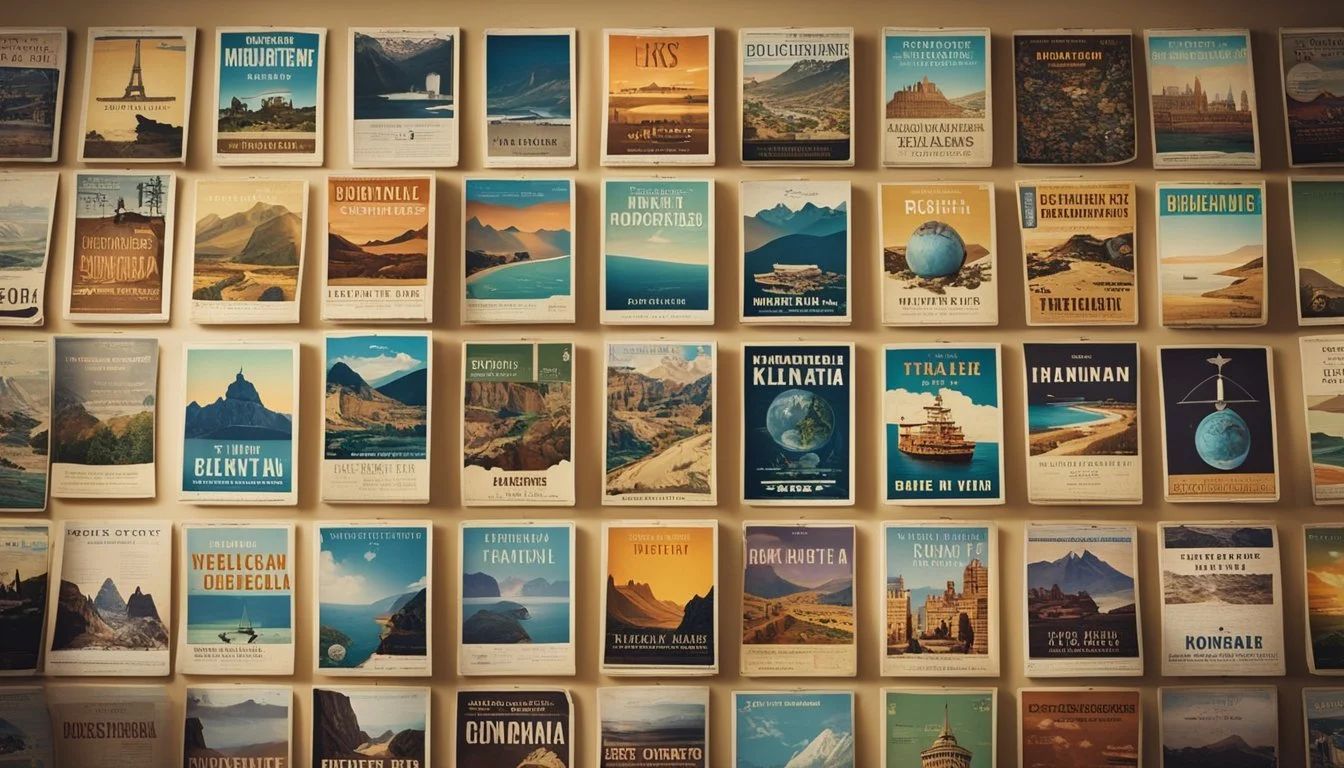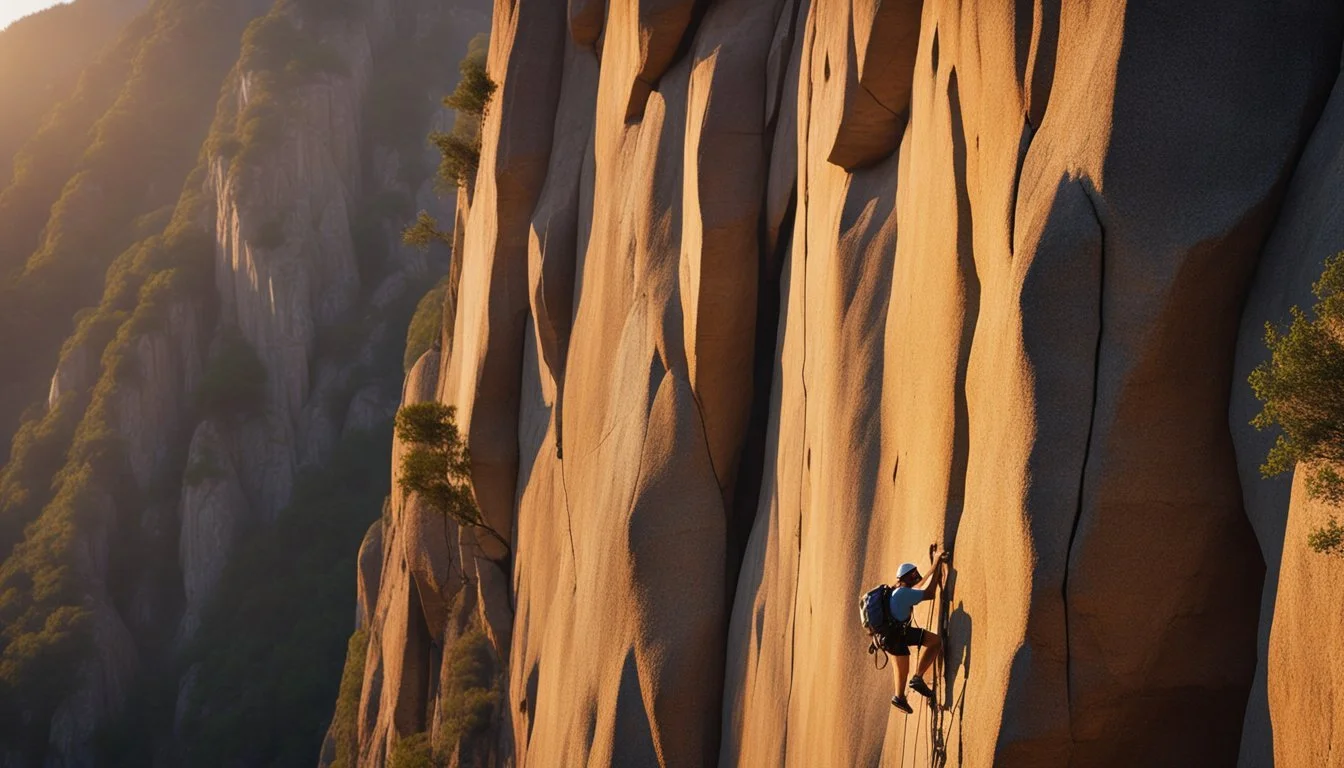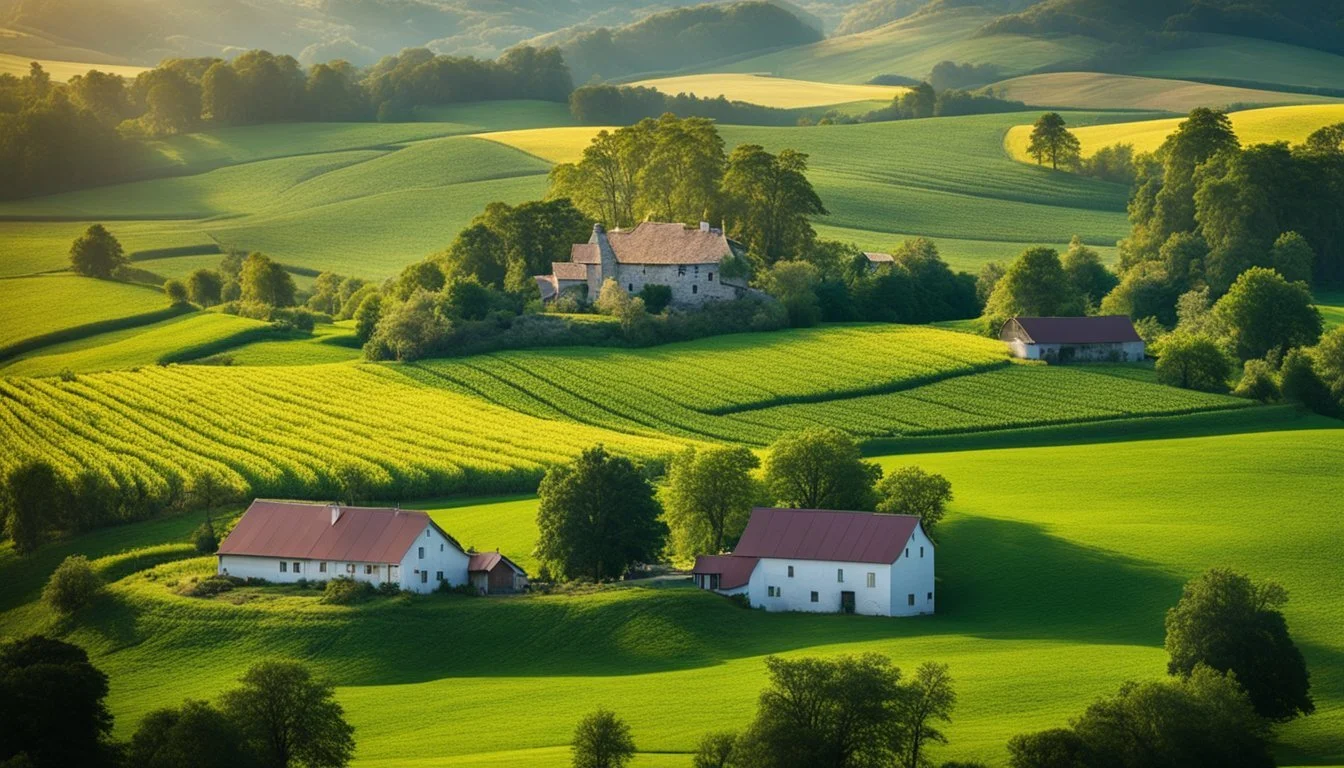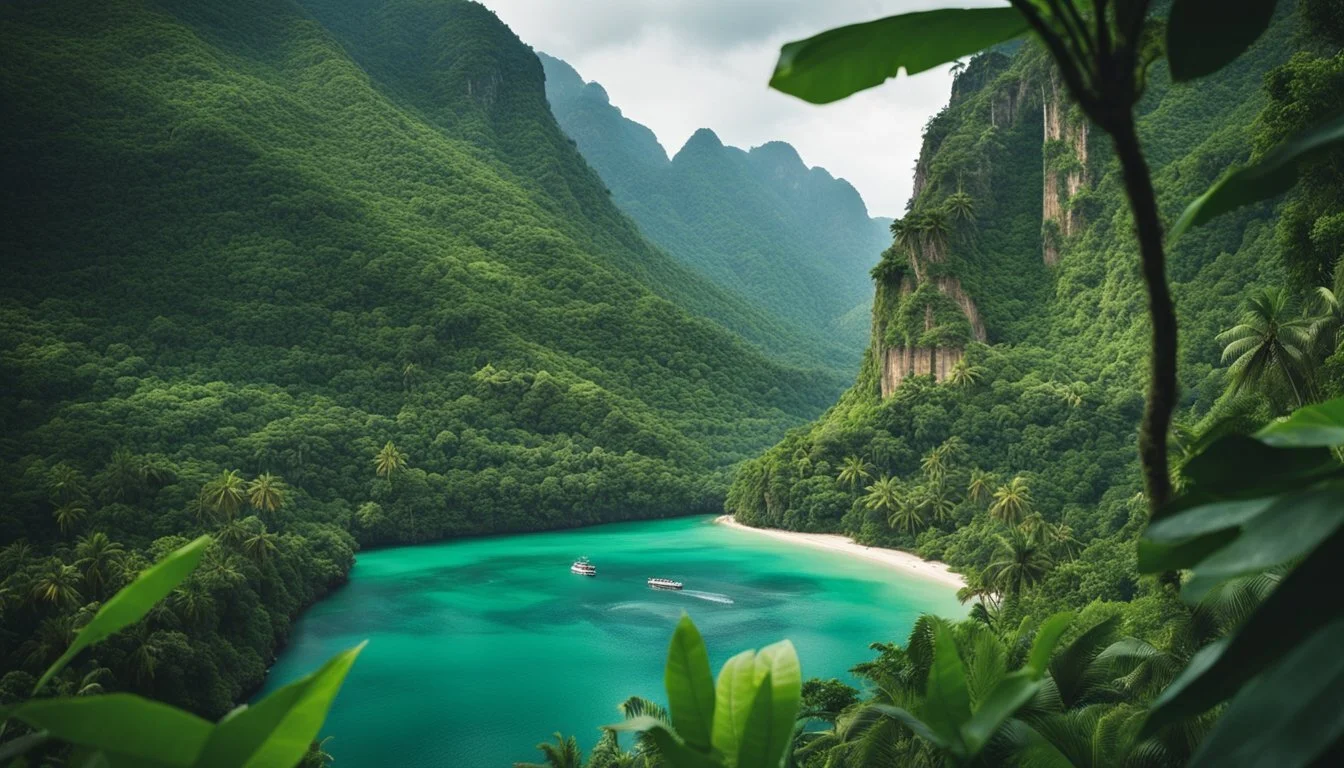10 Must-Watch Travel Documentaries of the Decade
Explore Our World
Travel documentaries capture the essence of exploration and adventure, offering viewers a chance to experience the world from the comfort of their homes. These films and series take audiences to remote corners of the globe, showcasing diverse cultures, stunning landscapes, and thrilling experiences.
For those seeking inspiration for their next voyage or simply wanting to see the world through the eyes of seasoned travelers, these documentaries are a treasure trove of visual storytelling and cultural insights. This article highlights the top 10 must-watch travel documentaries of the decade, each providing a unique perspective and an unforgettable journey.
1) Planet Earth II (2016)
Planet Earth II, a BBC nature series narrated by David Attenborough, is a must-watch for travel enthusiasts. It captures stunning high-definition footage of diverse habitats and remarkable animal encounters around the globe.
The series explores jungles, mountains, deserts, islands, grasslands, and urban landscapes, showcasing the resilience and adaptability of wildlife.
Composed by Hans Zimmer, the music complements the breathtaking visuals. Iconic moments include the thrilling chase between marine iguanas and racer snakes and the incredible journey of snow leopards.
The series has been highly praised and holds the title of the highest-rated television program on IMDb, reflecting its impact and popularity.
For more details, visit IMDb.
2) Our Planet (2019)
Narrated by David Attenborough, "Our Planet" offers a look into the extraordinary diversity of Earth's ecosystems.
Released in 2019, it spans diverse regions across the globe, from the icy realms of the Arctic to the dense tropical forests.
The documentary highlights the impacts of human activity on the environment, emphasizing the need for conservation.
Through stunning cinematography, it captures the beauty and fragility of our natural world.
It aims to educate and inspire viewers with its detailed depiction of flora and fauna in their natural habitats.
For more information, you can visit IMDb.
3) The Dawn Wall (2017)
"The Dawn Wall" is an American-Austrian documentary directed by Josh Lowell and Peter Mortimer. The film chronicles the journey of free climbers Tommy Caldwell and Kevin Jorgeson as they attempt to scale the formidable Dawn Wall of El Capitan in Yosemite National Park.
Tommy Caldwell's story is central to the documentary. At 22, he survived being taken hostage by rebels in Kyrgyzstan. Later, he lost his index finger in an accident, a significant setback for any climber.
Despite these challenges, Caldwell's determination did not waver. Following a personal tragedy of a broken marriage, he channeled his energy into the seemingly impossible goal of free climbing the Dawn Wall.
Kevin Jorgeson joined Caldwell on this ambitious journey. Together, they faced numerous physical and mental challenges during the climb. Their perseverance and teamwork are showcased throughout the documentary.
The film offers breathtaking visuals and an intimate look at the lives of two climbers pushing the boundaries of human potential in rock climbing.
For more information on "The Dawn Wall," visit the Wikipedia page.
4) Free Solo (2018)
"Free Solo" is a gripping documentary that chronicles rock climber Alex Honnold's attempt to scale El Capitan in Yosemite National Park without any ropes or safety gear. The film, released in 2018, captures the intense preparation and the extraordinary focus required for such a daring feat.
This visually stunning documentary presents breathtaking shots of the climb, juxtaposed with intimate moments that explore Honnold's mindset and personal life. The filmmakers, Elizabeth Chai Vasarhelyi and Jimmy Chin, managed to convey the sheer physicality and psychological pressure of the climb.
Rated PG-13, "Free Solo" is not only an edge-of-your-seat thriller but also a testament to human endurance and ambition. It won the Academy Award for Best Documentary Feature, cementing its place as a must-watch for adventure enthusiasts and documentary lovers alike.
For more information, visit its IMDb page.
5) 13th (2016)
Ava DuVernay's documentary, 13th, released in 2016, provides a powerful exploration of the history and evolution of racial inequality in the United States. The film focuses particularly on the nation's prisons and the disproportionate incarceration of African Americans.
Through a series of interviews with historians, activists, and politicians, 13th illustrates how the legacy of slavery and racial discrimination continues to impact modern-day criminal justice.
The title of the film refers to the 13th Amendment to the U.S. Constitution, which abolished slavery except as punishment for a crime. This loophole has been exploited over the years, as the film argues, shaping the mass incarceration crisis.
For those interested in understanding the systemic nature of racial bias within the U.S. legal system, 13th is a must-watch. It provides critical insights into policies and practices that have contributed to current issues.
6) The Biggest Little Farm (2018)
"The Biggest Little Farm" follows the journey of John and Molly Chester as they leave behind urban life to develop a sustainable farm on 200 acres outside Los Angeles. Their vision is to create a self-sustaining ecosystem that works harmoniously with nature.
Throughout the documentary, viewers witness the couple's trials and triumphs over a decade. They grapple with the unpredictable elements of nature, from droughts to pests, and learn to balance various aspects of farming—including crop diversity and animal husbandry.
The film offers a rich visual experience, capturing both the struggles and the beauty of farming life. The Chesters are transparent about their inexperience and the steep learning curve they face, making the documentary both honest and inspiring.
"The Biggest Little Farm" has garnered attention for its message about sustainability and environmental stewardship. It serves as a poignant reminder of the interconnectedness of our ecosystems and the importance of working in harmony with the land.
For more information, you can visit IMDb.
7) Jiro Dreams of Sushi (2011)
"Jiro Dreams of Sushi" is a remarkable documentary that explores the life and work of Jiro Ono, an 85-year-old sushi master.
He is the owner of Sukiyabashi Jiro, a renowned 10-seat sushi-only restaurant in Tokyo.
Jiro Ono is celebrated for his relentless pursuit of sushi-making perfection, an endeavor that requires immense dedication and discipline.
The documentary does more than just showcase culinary techniques.
It provides an intimate look at Japanese culture and traditions, as seen through the lens of a sushi chef's lifelong passion.
Jiro's meticulous approach to his craft has inspired chefs around the world.
Viewers witness not only the art of sushi but also the hard work that goes into maintaining high standards.
Jiro's relationship with his eldest son, Yoshikazu, who strives to live up to his father's legacy, adds emotional depth to the film.
For more information, see Jiro Dreams of Sushi on Wikipedia.
8) Human Flow (2017)
Human Flow is a compelling documentary directed by Ai Weiwei. This film explores the global refugee crisis, highlighting how over 65 million people have been displaced due to famine, climate change, and war. It spans over 20 countries, capturing the immense scale of human migration and its personal impacts.
Ai Weiwei uses various filming techniques, including drones, cameras, and iPhones, to document this crisis. The film presents a powerful visual narrative that emphasizes the urgency and gravity of the situation.
The documentary features urgent human stories from countries like Afghanistan, Bangladesh, France, Greece, Iraq, and Turkey. Each segment offers a glimpse into the lives of those affected, bringing a human face to the statistics.
Human Flow not only documents the plight of refugees but also challenges viewers to consider their circumstances and the broader implications of global displacement. This film is a poignant reminder of the ongoing humanitarian crisis.
For more detailed information, visit Human Flow on Wikipedia.
9) Won't You Be My Neighbor? (2018)
"Won't You Be My Neighbor?" is a poignant and insightful documentary that explores the life and legacy of Fred Rogers. Directed by Morgan Neville, the film delves into the principles and values that Rogers imparted through his beloved children's television show, "Mister Rogers' Neighborhood."
The documentary utilizes archival clips, personal footage, and interviews with those who knew Rogers best. This approach allows viewers to gain a deeper understanding of his unwavering dedication to kindness, empathy, and the emotional well-being of children.
"Won't You Be My Neighbor?" is praised for its meticulous construction and thoughtful presentation. It condenses the impactful years of Rogers' career into a 94-minute film, providing an intimate look at his philosophy and influence.
For more information about the documentary, visit IMDb.
10) Wild Wild Country (2018)
"Wild Wild Country" is a gripping Netflix docuseries that explores the incredible story of the Rajneeshpuram community in Oregon during the 1980s. The series dives into the controversial movement led by the mystic Osho, also known as Bhagwan Shree Rajneesh.
The six-part series provides a detailed look at the cultural clash that ensued when thousands of followers settled in the small town of Antelope, Oregon. It captures the ensuing legal battles, internal conflicts, and dramatic events that led to the community's eventual downfall.
Through a mix of archival footage and interviews with former members and locals, the documentary paints a vivid picture of the tensions and the extraordinary events of that period.
For those interested in understanding the dynamics of cults or the complexities of communal living, "Wild Wild Country" is essential viewing.
More information about the series can be found on Wikipedia.
The Evolution of Travel Documentaries
Travel documentaries have significantly transformed in terms of filming techniques and how they are distributed and accessed. These changes have enhanced viewer engagement and broadened the reach of these documentaries.
Changes in Filming Techniques
Advancements in technology have revolutionized how travel documentaries are filmed. High-definition cameras and drones now capture stunning visuals from unique perspectives, providing breathtaking, immersive experiences.
Use of 4K and 8K resolution cameras delivers crisp, clear images, bringing landscapes and cultures to life. Enhanced audio equipment ensures clear, high-quality sound, adding depth to the storytelling.
Filmmakers employ various techniques such as time-lapse, slow-motion, and aerial shots to create visually captivating content. Virtual reality (VR) and 360-degree filming also offer interactive experiences, allowing viewers to explore new places as if they were physically there.
Impact of Streaming Platforms
The rise of streaming platforms has profoundly impacted how travel documentaries are consumed. Services like Netflix, Amazon Prime, and Disney+ provide easy access to a diverse range of content.
These platforms offer personalized recommendations based on viewing history, increasing the likelihood of discovering new documentaries. The global reach of streaming services means that travel documentaries now attract a wider audience, spanning different cultures and demographics.
Viewers can watch on various devices, including smartphones, tablets, and smart TVs, making content accessible anytime, anywhere. Subscription-based models also support original productions, encouraging filmmakers to create high-quality, innovative travel documentaries.
Cultural and Environmental Significance
Travel documentaries often serve a dual purpose. They promote cultural awareness by showcasing diverse traditions and lifestyles, and they highlight crucial environmental issues that demand attention.
Promoting Cultural Awareness
Travel documentaries offer a window into different cultures around the globe. By presenting traditions, rituals, and daily life, they foster understanding and respect for cultural diversity. Films like "The Blue Planet" and "Blue Planet II" explore marine ecosystems, revealing the intricate ways local communities interact with their environment. This often includes indigenous practices that have sustained these ecosystems for generations.
Documentaries such as "The Top 10 Adventure Travel Documentaries to Watch" highlight how various cultures adapt to their geographical landscapes. Whether through festivals, art, or community rituals, these stories emphasize the importance of preserving cultural identity. The visual storytelling method captures the essence of places that text alone cannot convey, reinforcing the unique characteristics of each culture.
Highlighting Environmental Issues
Environmental documentaries bring to light pressing ecological concerns. "Breaking Boundaries: The Science of Our Planet" details the scientific aspects of the climate crisis, urging viewers to take action. By showcasing the impact of human activities on the planet, these films encourage sustainable practices.
Other documentaries, such as those listed in "Top 10 Environmental Documentaries of the Decade," explore themes like climate change and biodiversity loss. They present eye-opening evidence and personal stories from those directly affected by environmental degradation. By vividly illustrating the consequences of environmental neglect, these films aim to spur audiences into advocating for and adopting eco-friendly habits.
Through powerful visuals and compelling narratives, these documentaries not only educate viewers but also inspire them to make meaningful changes in their lives.






